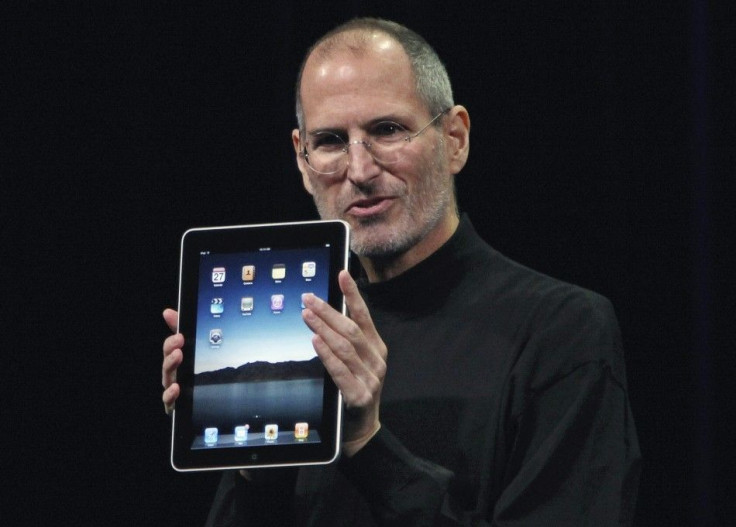The Day After Steve Jobs Died: What Next for Apple?

Now that Steve Jobs is dead, the company he created will serve as one of his greatest legacies. It employs 46,600 worldwide. Annual sales for the period ended Sept. 30 are expected to exceed $100 billion for the first time.
On Wednesday, Apple was the second most-valuable company only behind Exxon Mobil. Many days, it is the most valuable. It is valued around $351 billion.
Apple has hundreds of millions of customers who own Macs and Macbooks, iPods and iPhones and now iPads, as well as many as 500,000 individual apps from the App store.
Jobs, 56, had only stopped being CEO of the Cupertino, Calif.-based company on Aug. 24, assuming the new office of Chairman. He directed the election of his successor, Tim Cook, 50, because he trusted his judgment and performance during his many leaves for cancer treatment.
What does Cook need to do now?
First, after a brief mourning period for a mentor and trusted ally, he needs to show he's up to the job of being a successor CEO to a founder and acknowledged genius. This is very hard and often impossible, but many U.S. companies like Ford and IBM have continued into their second centuries. Apple is only 35 years old.
Cook won respect for his performance at Tuesday's introduction of the iPhone 4S, albeit without the pizzazz of Jobs. He handled the introduction, which techies but not the company, had overhyped, leading subordinates to show off its new features in power, versatility, speech recognition and video.
Next, Cook needs to keep quiet until Apple announces its presumably record fourth-quarter results Oct. 18. That is securities law and probably a good thing. For sure, any kind of executive will Jobs directed be opened at his death should be scrutinized by Cook and the board of directors, which includes former U.S. Vice President Al Gore.
Then, Cook needs to keep working on new products. When they are ready, Apple will have to introduce the iPhone 5 and iPad 3 and whatever new Apps come from the App Store. Meanwhile, it will have to ensure strong quarterly sales of new products during the holiday season.
Apple will not be alone. Next month, Amazon will start shipping the Kindle Fire and new products from Sony and Samsung will meet up with the iPad in the consumer marketplace. They will also have different price points.
It could be that Cook, a savvy marketer, already took the first steps in a new strategy by authorizing different price tiers for the iPhone line. While some iPhone 4s models will be priced at $299, less-powerful models will come for $199. And older iPhone 3s will be free. That strategy may be new.
Next, Cook will have to keep spending on new products. Last quarter, the company laid out $628 million in research and development, bringing the nine-month total to nearly $1.8 billion. Apple needs to ensure its creative team doesn't lose its magic.
Jobs has been ill for years, during which a host of innovations have come out. That may prove that some of the magic of the founder has been transmitted to employees.
Finally, Cook and the new team will need to constantly be alert to whatever disruptive technologies look to be out there, much like Jobs and co-founder Steve Wozniak disrupted the entire computer industry more than 30 years ago. Jobs, especially in the 14 years since he returned as chief, kept doing it again, adding music and entertainment, telephony and the tablet to his innovative palette.
Investors will have their first chance to vote as stock markets open Thursday. Consumers will power up their devices, going to iTunes and ordering products online. Others will flock to one of the 310 Apple stores worldwide.
And the business will continue....
© Copyright IBTimes 2024. All rights reserved.












